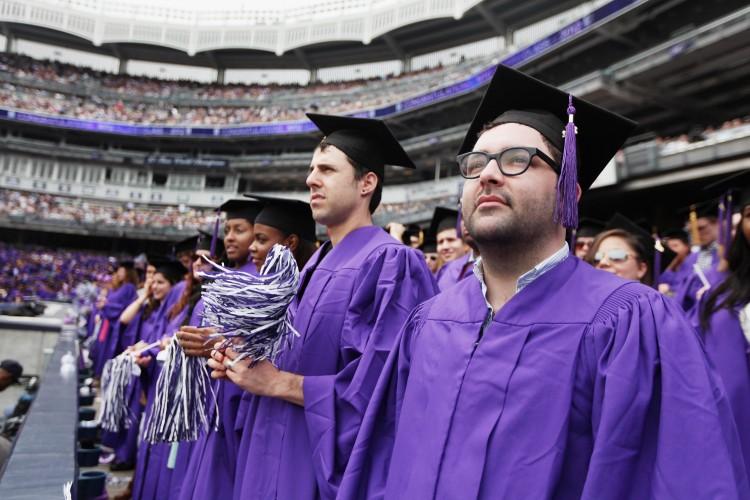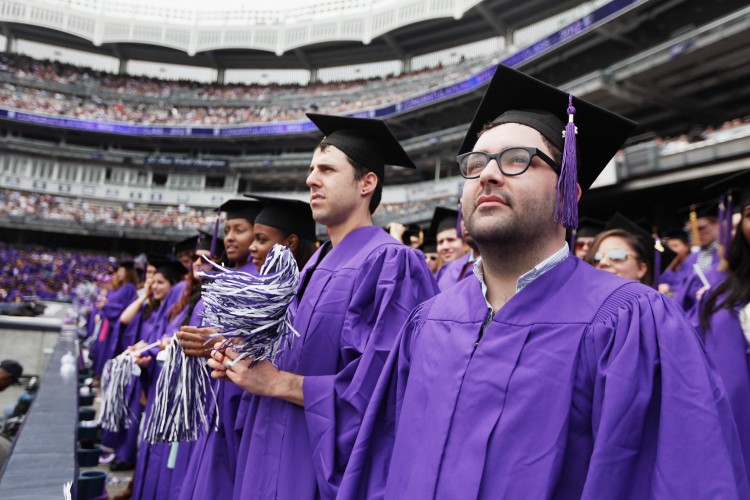While most parents think that a college education is a worthy investment, there is an increase in the number of parents questioning the worth and rising cost of a college education, according to a recently released report.
The survey, the Merrill Edge Report: Fall 2012, sponsored by Bank of America’s Merrill Edge, found that some Americans are now questioning the validity of acquiring a college education.
“With the cost of college education rising, one in five (19 percent) mass affluent Americans don’t believe college is worth the investment,” the report states. A phone survey was conducted among middle-income parents making $50,000–$250,000 a year, referred to as mass affluent members of the population.
Although middle-income parents generally do fund higher education for their children, it is not without reservation. “Parents continue to financially support their children’s education, yet 40 percent of the mass affluent express concern over the rising cost of college,” the survey states.
Parents with younger children are more favorable to the cost of higher education. The survey asked, “Do you think the cost of college education is worth the return on your investment?” Most parents with young children said yes, at 75 percent, while only 61 percent of parents with adult children think that a college education is a good investment.
The rest do not think a college education is worth the ROI, or they “don’t know.”
Half of the parents surveyed said that they wish they had started saving for their child’s college education earlier, since “nearly three in five (58 percent) mass affluent parents are dipping into their own personal savings to pay for their children’s college.”
As for the cost itself, middle class parents are using home equity loans and education savings plans like the IRS’s 529 plan, but more than half are requiring government assistance or student loans. A quarter of those surveyed say that their child will contribute.
Rising Costs
Meanwhile, the cost of education climbs. “On average, over the decade from 2001–02 to 2011–12, in-state tuition and fees increased at an annual rate of 5.6% beyond general inflation, a more rapid rate of growth than in either of the two preceding decades,” states a trend analysis by the College Board Advocacy and Policy Center.
Outstanding student loan debt totaling over $1 trillion in 2012 has also brought closer scrutiny as to where the money is going, and the expenditure of college dollars has impacted faculty at taxpayer-funded public institutions. Some tenured faculty members blame bureaucratic bloat.
“We’re a public university,” said Paul Robinson, chairman of Purdue University’s faculty senate, in a Nov. 14 York Daily News report. “We’re here to deliver a high-quality education at as low a price as possible. Why is it that we can’t find any money for more faculty, but there seems to be an almost unlimited budget for administrators?” The cost of attending Purdue has risen 60 percent in the last 10 years.
Department of Education data reportedly shows a 60 percent rise overall in U.S. universities in the number of administrators, “or 10 times the rate of growth of the tenured faculty,” according to York Daily News.
As for parents investing in that higher education, according to Merrill Edge surprisingly only 12 percent discuss college tuition costs, planning finances more often around home improvement projects, romance, and work, along with their amount of personal debt and caring for adult children or aging parents.
Rising health care costs, retirement security, and lifestyle are of greatest concern, while impact of tax reform and supporting one’s family remained in the middle of financial concerns, according to the Merrill Edge report.
Merrill Edge’s semi-annual study looks at the financial concerns, priorities, and behaviors of nearly 1,000 Americans with $50,000-$250,000 in investable assets. The phone survey was conducted by research partners Ketchum Global Research & Analytics, and Braun Research, on behalf of Bank of America.
Merrill Edge is the marketing name for Merrill Edge Advisory Center, and is backed by Merrill Lynch, Pierce, Fenner & Smith Incorporated (MLPF&S).
The Epoch Times publishes in 35 countries and in 19 languages. Subscribe to our e-newsletter.







